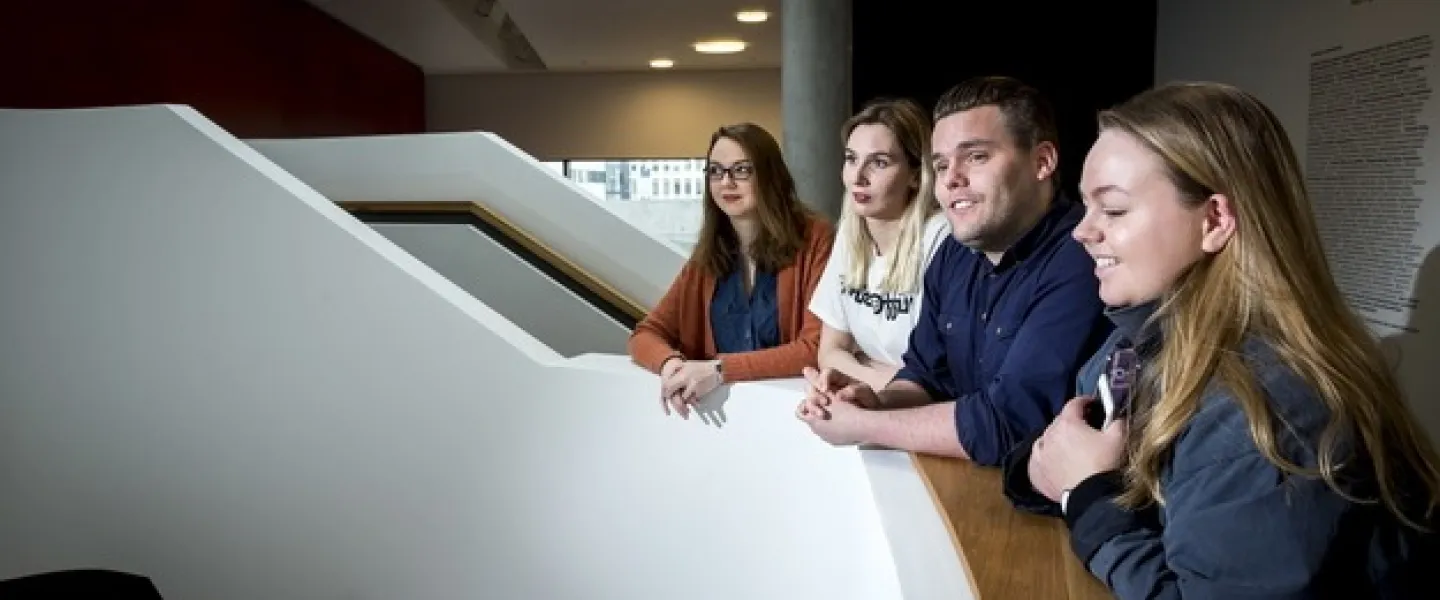
"The University of Iceland offers all students to improve their competitive position by studying any of the numerous foreign languages taught at the University without any additional cost. Students can take courses and get credits in all languages taught at the University and usually get them accredited within their study programmes. Students can, furthermore, attend courses at the University of Iceland's Language Centre that are custom made for each student, and thus begin a self-directed language learning.” Says Oddný G. Sverrisdóttir, professor in German at the University of Iceland. German is among the thirteen foreign languages currently taught at the University. The other languages are Arabic, Danish, English, French, Greek, Italian, Japanese, Chinese, Latin, Russian, Spanish, and Swedish.
Birna Arnbjörnsdóttir, professor in second language studies at the University of Iceland agrees with Oddný and says that globalisation has provided students with the opportunity to work in different cultural areas, making language skills extremely important. "Knowledge in different languages provides students with an understanding of different cultural areas and improved cultural literacy. Languages also create, without a doubt, opportunities in careers, research, art, literature, and films; as well as travelling as everyone is aware of," says Birna.
Language are extremely important
Birna and Oddný agree that the importance of languages is much more than meets the eye; as language knowledge can increase the possibilities of good jobs and successful careers. "Languages are not only used to talk to others, but it is also holds the key to understanding other cultures," says Oddný, "and research shows that skills in more than one language has positive effects on the brain," adds Birna.
Knowledge in English is widespread in Iceland and Birna says that even though many are fluent fewer realise that around 60% students at the University of Iceland in fact struggle in understanding English texts to the fullest.
"Today's discussion centres upon how language skills increase possibilities for work both in Iceland and abroad.
Languages enrich exchange studies
Exchange studies are a unique opportunity for students at the University of Iceland to take part of their studies abroad at one of over five hundred partner universities all over the world. Exchange programmes are included in the student's academic records at the University of Iceland so stays abroad do not affect the length of the study programme.
"If you are planning to go on an Erasmus-exchange programme you will profit from a solid preparation; including learning something in the language before you leave," says Oddný.
Exchange studies enable students to study at the world's best universities that are normally very difficult to get into, providing more diverse courses on offer, especially in graduate studies.
Exchange students can also open doors for those who wish to continue their studies at the partner university or at another one in the same country. Research has shown that exchange programmes have a positive impact on young people's employment opportunities.
"If you plan on graduate studies abroad you profit better from your studies and stay if you have learned the language of the country," adds Oddný.
Birna and Oddný point out that the deadline for registering for the language programmes is 10 September; irrelevant of the student's current study programme." The language facilities at the University of Iceland are excellent as all teaching is in the beautiful surroundings in Veröld - Vigdís' house," concludes Birna.